The end of an era for liberation movements?
After defeating colonialism, white minority rule and post-colonial authoritarian governments, many of Africa’s liberation movements seem to have lost ground in the democratic era, challenged by the harsh realities of contemporary politics and socio-economic development dynamics.
From Algiers to Johannesburg, and Maputo via Praia and Bissau, Lusaka, Luanda, Windhoek and Dar es Salaam, Africa’s liberation movements were welcomed after decades of colonialism and white minority rule.
These movements included, among others, the Front for National Liberation (FNL) of Algeria, the African National Congress (ANC) of South Africa, Mozambique’s Front for the Liberation of Mozambique (FRELIMO), the African Party for the Independence of Guinea-Bissau and the Cape Verde (PAIGC), the Popular Movement for the Liberation of Angola (MPLA), the South West African People’s Movement (SWAPO) of Namibia, the Zimbabwe African National Union (ZANU), and Tanzania’s Chama Cha Mapinduzi.
Brimming with hope, optimism and confidence, they positioned themselves as the “messiahs” of the continent, making ostentatious promises to improve the lives of their people.
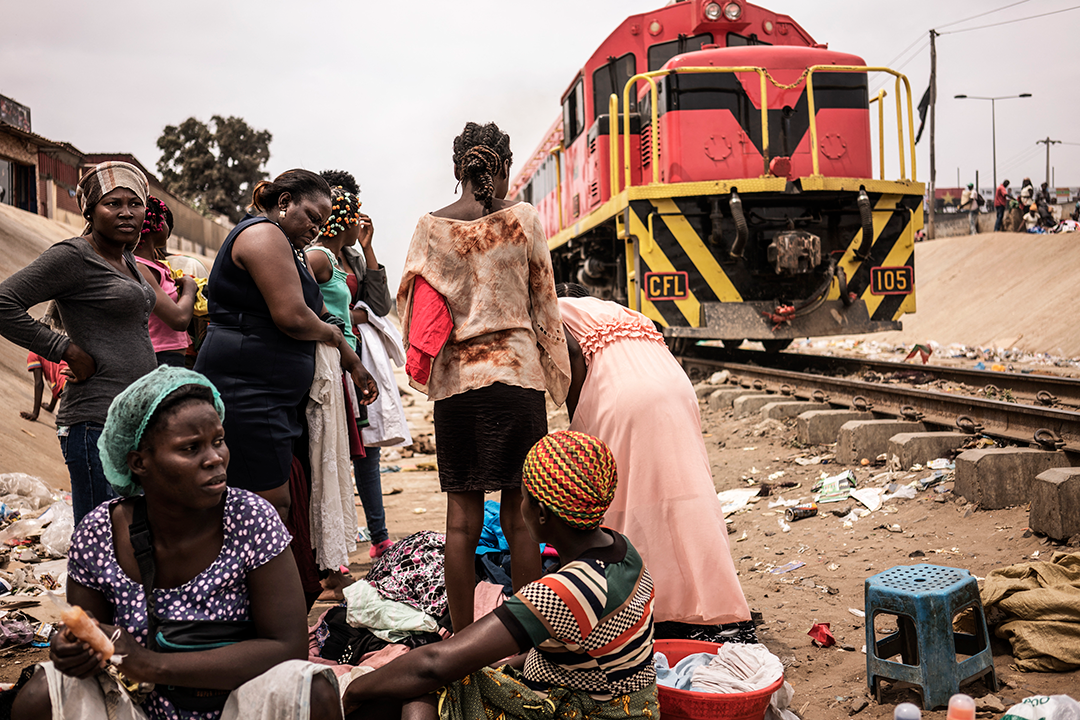
Hawkers protect their goods as a freight train approaches in the Viana district in Luanda, on August 22, 2017. Photo: Marco Longari/AFP
However, more than four decades later, the promises of social justice and prosperity appear to have vanished into thin air, as severe social, economic, environmental and political crises have deepened across the continent, prompting the emergence of a new generation of young activists and calls for political revival.
“The political, social, economic situation is catastrophic in all African countries ruled by governments [that came out of] liberation. All the enthusiasm, joy and hope that held up our spirits have all but gone up in smoke,” Maria Agostinha da Silva (75), a disgruntled member of Angola’s MPLA, told Africa in Fact from the capital, Luanda.
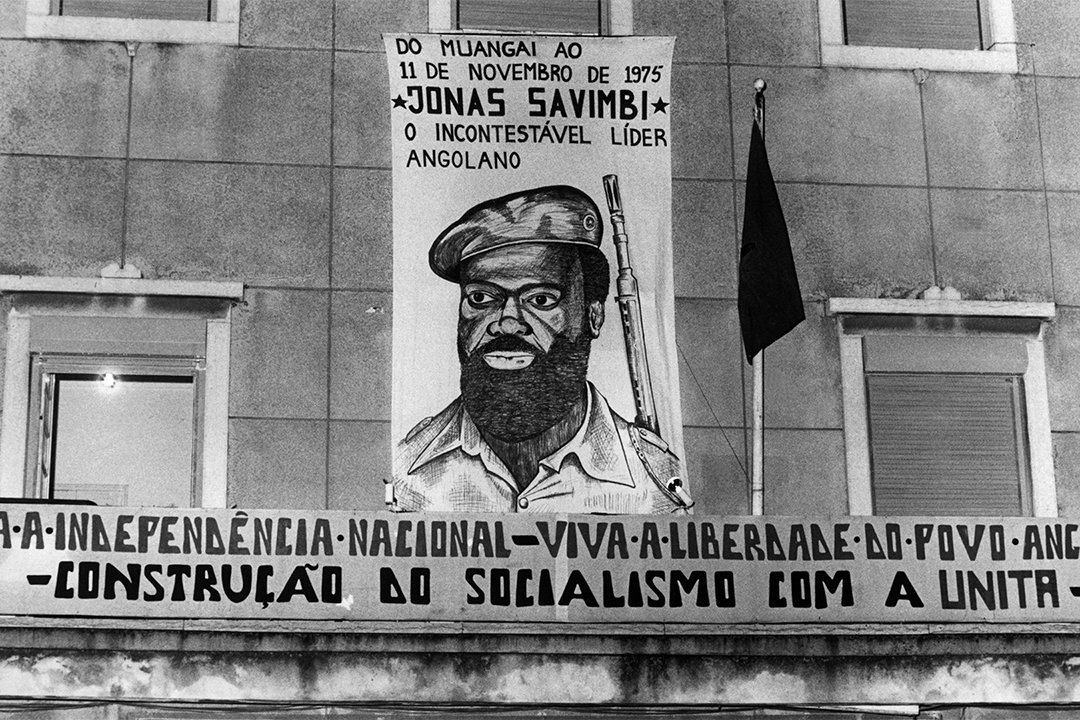
A portrait of Jonas Savimbi, the leader of the Angolan guerilla group UNITA, pictured on the UNITA building in Lisbon in 1975. Photo: AEI-NOTICIOSA/AFP
“Everything they have done over the years was contrary to what we agreed upon in the very beginning of our movement,” she said.
“Initially, the MPLA had a slogan, o mais importante é resolver os problemas do povo (the most important thing is to solve the people’s problems). But more than 40 years down the line, not even a single problem of the people has been solved,” she said. “The MPLA has, over the years, turned into one of the continent’s most corrupt and brutal liberation movements, which will not tolerate criticism and peaceful protests.”
Angola is Africa’s second-largest oil producer, but 41% of its population lives in extreme poverty, according to the Poverty Report for Angola released in June 2020.
Martin Bwalya, head of the industrialisation division for the New Partnership for Africa’s Development (NEPAD), told Africa in Fact that liberation movements were designed and constructed essentially for a specific purpose – to liberate.
“Therefore, the onus has been on these movements to transform themselves from ‘liberation functions and tools’ to ‘ruling and championing development’. It’s this transformation which many of the liberation movements have not done or not done that well,” he said.
The consequence had been a failure to respond to people’s economic growth and development aspirations, Bwalya added. “This surely opens up a gap between the people and the liberation movements, as the people, especially urban populations, begin to question why their aspirations and access to basic needs remain a dream.”
Bwalya said it was not uncommon for liberation movements to rely on their credentials as liberators when challenged. “Liberation movements think they will sustain their popularity on the basis of past glory,” he said. “But there are cases where liberation movements have clearly ceased to be inspired and driven by people’s needs, becoming elitist instruments of nepotism and corruption and even oppressive to those that may be asking for genuine people’s needs.
“The responsibility is on former liberation movements to evolve and transform into governments with a focus and capability on service delivery and accountable resource management, as well as clear development foresight,” he added.
However, despite mounting criticism from civil society, among others, that these movements have not only become irrelevant, but have also run out of ideas and no longer have a role to play, their leaders beg to differ.
Pallo Jordan, a prominent figure in the African National Congress (ANC), which came to power with the end of apartheid in 1994, says no South African political formation has been able to match his party’s political and social programme as laid down in the 1955 Freedom Charter.
“The day that a political party with a vision close to, or outdoing the Freedom Charter, emerges, one could then say the ANC has run out of ideas and has no role to play in the present,” Jordan, a former cabinet minister, told Africa in Fact.
Disappointed by the approach taken by the party in the post-apartheid era, some influential ANC members left and launched their own political parties, including Congress of the People (COPE) and the Economic Freedom Fighters (EFF).
Neither COPE nor the EFF have been able to improve on the ANC’s programme, Jordan said. “This suggests that contemporary politics has yet to catch up with the ANC’s vision. The majority of voters appear to agree,” he said.
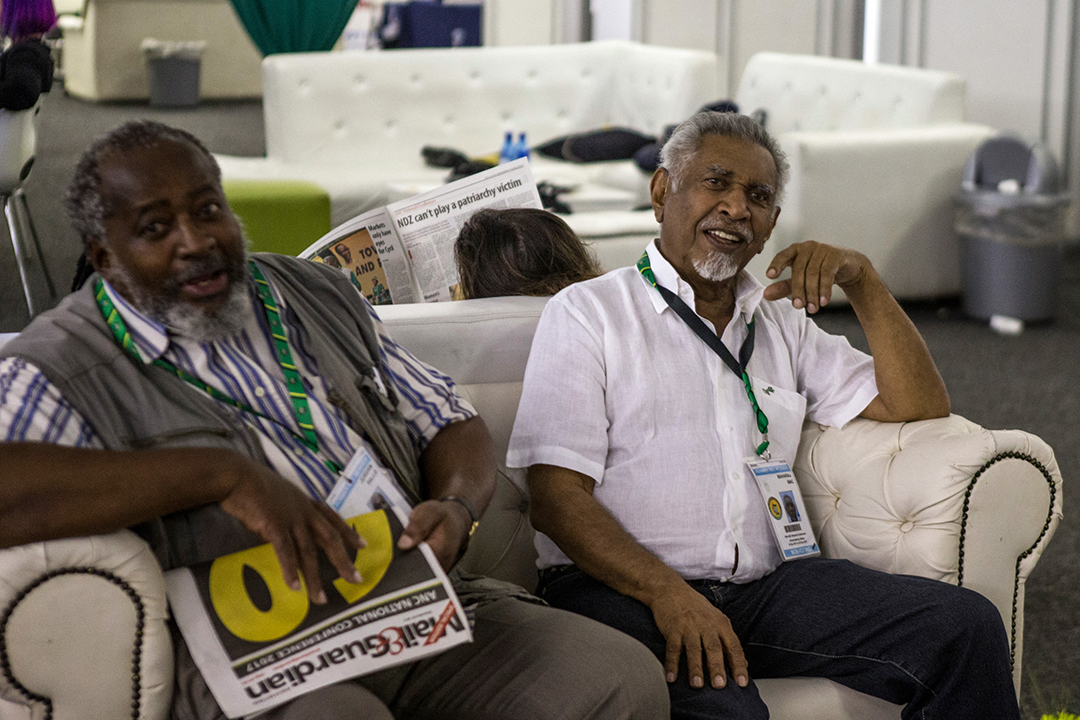
Pallo Jordan (L), former African National Congress (ANC) executive committee member, and Mac Maharaj, former official spokesperson of the president of South Africa, attend the ANC 54th National Conference in Johannesburg on 20 December, 2017. Photo: Wikus de Wet/AFP
“All South Africans today are citizens of this country, enjoying equal rights with all others,” he said, adding that the former liberation movement had given people a real sense of patriotism.
Despite these achievements, the ANC has seen its support base eroded, particularly in urban areas, where the party has lost ground in local elections in recent years. Failed service delivery promises, corruption and high unemployment have also tarnished the party’s liberation credentials.
But Jordan defended the ANC’s efforts. “Job creation is a function of economic growth. South African investors have not come to the party and the business community collectively does what it can to evade legislation aimed at creating greater equality and effectively fighting poverty.
“No corporation has as yet fulfilled its obligations in terms of employment equality. Year after year, South African corporations report serious underperformance in terms of employment equality and Black Economic Empowerment (BEE).
“The spokespersons of business still long for a return to a low-wage economy, with the capacity to serve only the white minority and a tiny black elite. Consequently, economic growth is reliant on stimulation by the government and foreign direct investment.”
According to NEPAD’s Bwalya, Africa’s development outlook, while by no means bleak, certainly has plenty of room for improvement, both in terms of policy and investment options as well as strategies to aggressively grow local industries, including tradeable services.
“The current state of affairs cannot be placed wholly in the laps of the liberation movements. There are certain fundamental principles that Africa needs to boldly embrace – and these are key conditions for successful development.
“One of these principles underpins recent African Union reforms championed under the leadership of Rwanda’s President Paul Kagame (himself the former leader of the Rwandan Patriot Front) that Africa has to look inward and mobilise, and take responsibility to finance development from its own resources.
“As President Kagame has said several times, it is not a lack of resources, but the appropriate mindset to believe in self and discard the perception that western aid is the essential underlying pillar for their development.”
Kinshasa-born Issa Sikiti da Silva is an award-winning freelance journalist. Winner of the SADC Media 2010 Awards in the print category, he has travelled extensively across the African continent. He lived in South Africa for 18 years, where he worked for 10 years as a journalist before leaving for West Africa, and later to East Africa, to work as a foreign correspondent. He is currently based in Nairobi, Kenya.

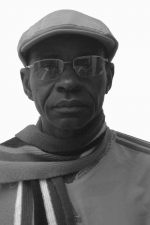
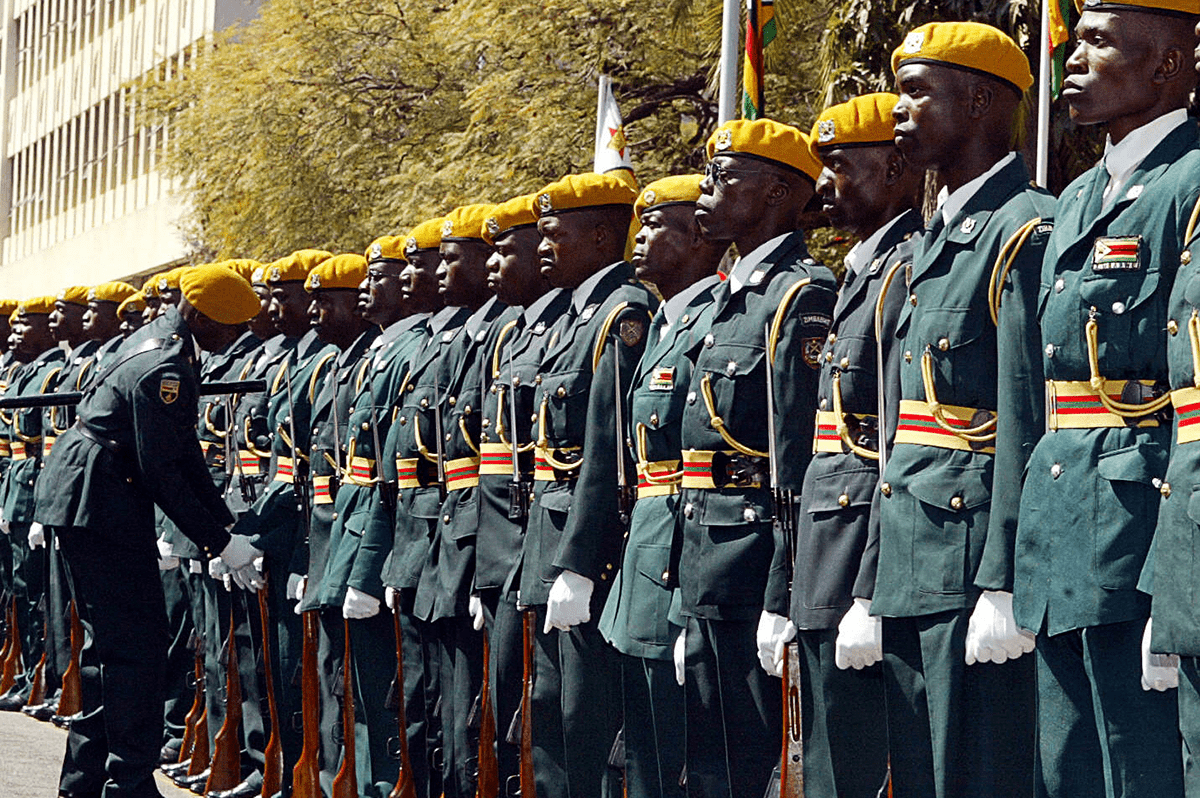
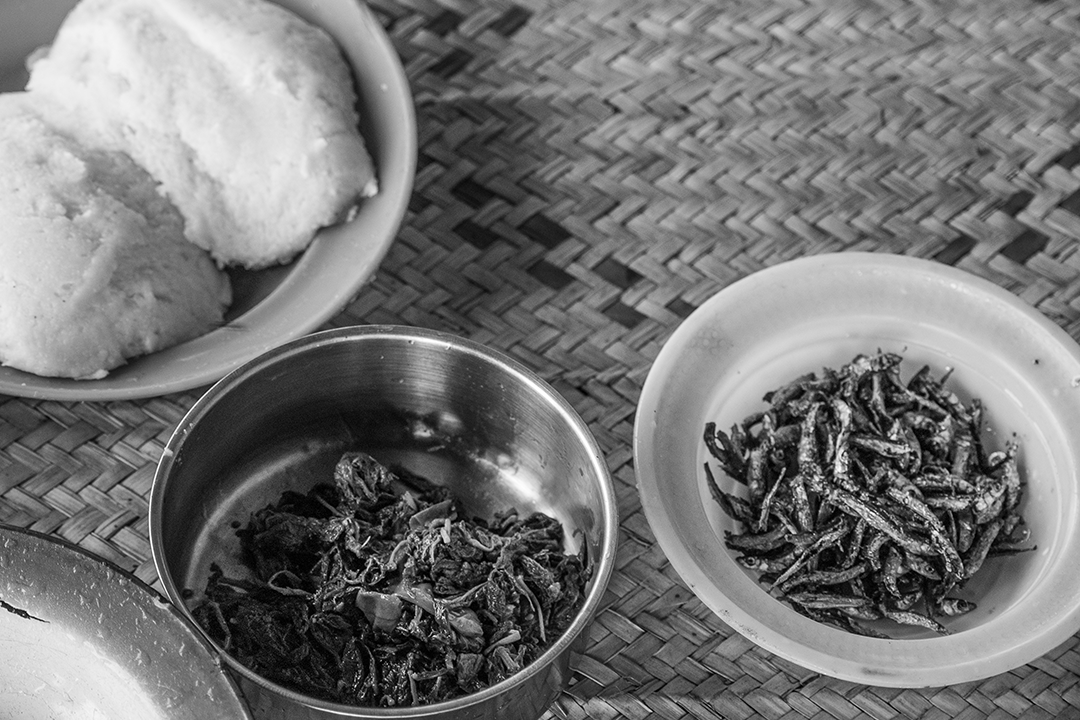
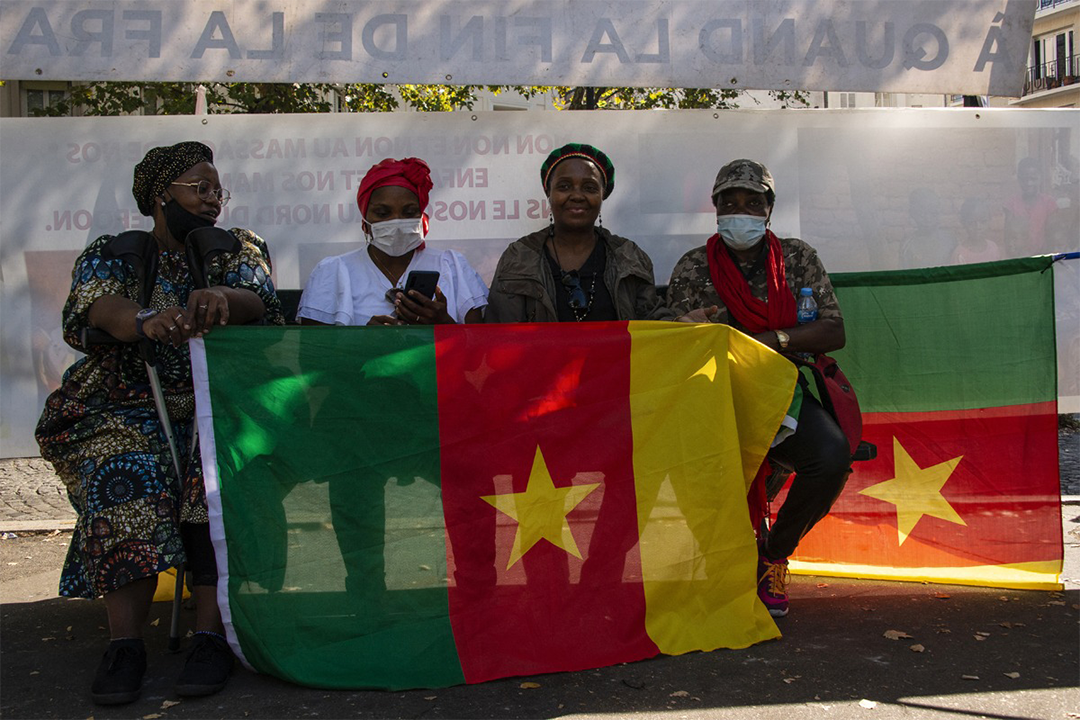
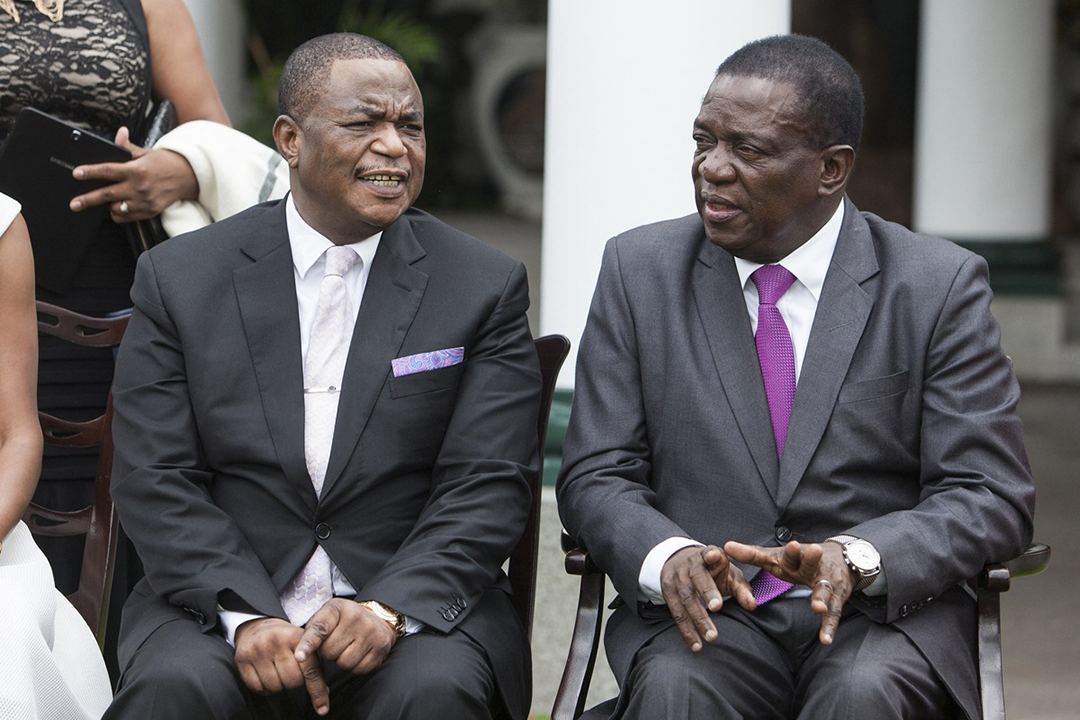







Interesting